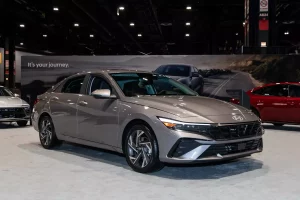- 27 June 2024
- 92
How are GCC nations leading way for greener transportation

In recent years, Gulf Cooperation Council (GCC) nations have increasingly focused on transforming their transportation sectors to mitigate environmental impacts. This article explores how GCC countries are pioneering initiatives towards greener transportation.
Current Initiatives in GCC Nations

Saudi Arabia
Saudi Arabia has launched ambitious plans to reduce carbon emissions from transport, including investments in electric vehicle (EV) infrastructure and incentives for renewable energy adoption in transportation.
United Arab Emirates (UAE)
The UAE has implemented various sustainable transport projects such as Dubai’s electric vehicle initiatives and Abu Dhabi’s commitment to hybrid buses and clean energy solutions for public transport.
Technological Innovations
GCC nations are at the forefront of technological innovations in transportation. For instance, Dubai’s Roads and Transport Authority (RTA) has introduced autonomous mobility solutions and smart traffic management systems to enhance efficiency and reduce emissions. Similarly, Qatar’s investments in hydrogen fuel cell technology for buses demonstrate a commitment to exploring alternative fuel sources beyond traditional electric vehicles. These technological advancements not only improve environmental sustainability but also position GCC cities as hubs for smart, integrated transportation solutions.
Public and Private Sector Collaboration
Collaboration between the public and private sectors plays a pivotal role in advancing greener transportation agendas across GCC nations. Governments are partnering with global automotive manufacturers and technology firms to pilot new mobility solutions, while private enterprises are investing in research and development of sustainable transport technologies. This collaborative approach fosters innovation and accelerates the adoption of eco-friendly transportation options, benefiting both the economy and the environment.
International Partnerships and Influence
GCC countries are actively engaging in international partnerships to exchange knowledge and best practices in sustainable transport. For instance, Saudi Arabia’s participation in global climate initiatives and hosting of international forums on clean energy underscore its commitment to shaping global agendas on sustainable development. By leveraging their strategic geographical location and economic influence, GCC nations are not only driving local sustainability but also exerting influence on global efforts to combat climate change through sustainable transport solutions.
Qatar
Qatar aims to integrate electric buses into its public transport network and has initiatives to promote sustainable fuels for vehicles, reducing reliance on traditional fossil fuels.
Kuwait, Bahrain, and Oman
These nations are also progressing towards greener transportation, focusing on public transport enhancements, EV infrastructure development, and regulatory frameworks to support sustainable transport options.
Challenges Faced
Despite progress, GCC nations encounter several challenges:
- Infrastructure Development: Scaling up EV charging networks and sustainable fuel infrastructure.
- Consumer Adoption: Encouraging public and private sector uptake of greener transport options.
- Policy Frameworks: Aligning national policies with international standards and environmental goals.
Comparative Analysis
EV Adoption Rates
Comparison of EV adoption rates across GCC nations, highlighting leading countries and factors influencing adoption.
Investment in Infrastructure
Analysis of investment levels in EV charging stations and renewable energy infrastructure across GCC countries.
Regulatory Environment
Comparison of regulatory frameworks supporting greener transportation, including incentives, emissions standards, and policy coherence.
Future Outlook
Despite challenges, GCC nations are poised to continue leading in greener transportation. Future trends include:
- Expansion of EV fleets and charging networks.
- Increased integration of renewable energy in transport.
- Enhanced public awareness and adoption of sustainable transport practices.
Conclusion
In conclusion, GCC nations are making significant strides towards greener transportation through innovative policies, investments, and infrastructure developments. By addressing challenges and leveraging regional cooperation, these countries are setting benchmarks for sustainable mobility on a global scale.

